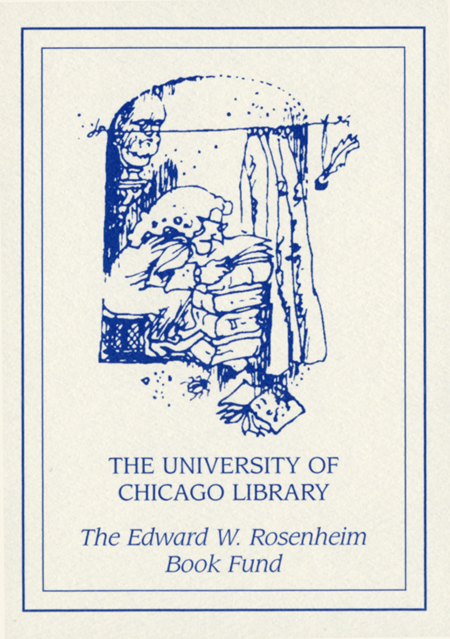Review by Booklist Review
Scott is French Canadian, and this novel was named one of the 10 best Canadian novels of 1999 by the prestigious Canadian magazine Quill & Quire. That it garnered such kudos will not surprise American readers, for anyone who appreciates serious literature will recognize it is a tour de force of technique, style, and soul. Ostensibly, the novel is the journal of a Canadian writer in temporary residence in a Paris atelier. It is as if readers have been handed the writer's journal, through which they learn her every on-the-spot reaction to being a foreigner--albeit a French-speaking foreigner--in one of the world's most cosmopolitan cities. But even given Paris' cosmopolitan nature, is the narrator immediately at home there? Not at all. The city's notorious haughtiness, however, is not to be entirely blamed for the narrator's slow-to-erode sense of outsiderliness. Much of it has to do with her inability, at first, to respond openly to the multilevel stimulation Paris exerts on anyone who stops there for longer than the usual tourist week or two. Postcard Paris, bourgeois Paris, and even scruffy Paris all comprise the knock-you-sideways set of impressions the successful longtime visitor must absorb. This is a novel of place, of urban place; a novel that is so about Paris that, as cliched as it sounds, Paris functions as the chief protagonist. There are few complete sentences here, yet the reader soon feels at ease with the rhythm and syncopation of a writing style done in words and phrases. --Brad Hooper Copyright 2003 Booklist
From Booklist, Copyright (c) American Library Association. Used with permission.
Review by Library Journal Review
In this intriguing book, an Anglo-Quebecois woman writer visiting Paris in the early 1990s muses about life, literature, art, and politics in stream-of-consciousness diary entries. Through these 120 brief entries, we are made privy to the things that struck her: places of historical merit, commercial offerings, the mistreatment of African immigrants, caf? culture, and the war in Sarajevo. We also read snippets about contemporary French TV and are kept abreast of the ways a clothing store near her apartment entices shoppers. Scott eschews complete sentences, offering only impressionistic fragments: "Thinking growing old in Paris. Maybe nice. City being circular. Metro. Every half kilometer." While many readers will find this technique tiresome, Canada's Quill & Quire magazine dubbed the book one of 1999's ten best. Perhaps this is because the novel lingers in the mind's eye long after it is finished. Vivid, personal, and seemingly honest, this work is recommended for large public and academic collections.-Eleanor J. Bader, Brooklyn, NY (c) Copyright 2010. Library Journals LLC, a wholly owned subsidiary of Media Source, Inc. No redistribution permitted.
(c) Copyright Library Journals LLC, a wholly owned subsidiary of Media Source, Inc. No redistribution permitted.
Review by Kirkus Book Review
Ending its moratorium on new fiction, Dalkey seems to have made this selection on the basis of obligations from exhausted literary lore rather than anything of a new or living interest. The narrator is a Montreal writer (like author Scott) who is spending a certain time in Paris, living in a studio apartment under the eye of a typically critical and snoopy concierge. Her friends are "Z," "B," "S," "C," "P," and "H," some male, some female, though it's not easy to find out who's which, nor is any of them given shading or depth enough to be memorable or seem more than a cipher. The narrator is ever-busy: lounging on her studio couch not writing (and feeling guilt); observing the changing window display in the men's store across the way; sight-seeing (she's encyclopedically knowledgeable about historic and literary Paris); stopping in cafÉs; or going to literary and movie-celebrity parties. But she's no fun whatsoever to spend time with on the page, since she comes no more to life than do her alphabetical friends. That she's lesbian becomes clear, but much clearer is that she's got some weird idea about gerunds, seemingly derived from an idea Gertrude Stein had about predicates. Or whatever. In any case, this brings our narrator, over and over, to write things of this sort: "Like she doing. When visiting chez nous. Reinforcing sense I not at all in Paris I expecting." Or to say things like "Feeling like weeks since I sleeping." She can say careful, lovely, poetic things like "On the boulevard strip the ragged maples blow." But much, much, much more often her remarks are such as "Suddenly I feeling in Paris I expecting." She's having, it seems, trouble selling her "Bk of Md'd Wm'n." One very elegant publisher, over tea, suggests that the trouble has to do with the "American in charge of translation" and "Thinking narrative wanting." But could it--gasp!--possibly be? Learned, pretentious, politically correct, navel-gazing, tedious, wholly uninteresting fiction. Copyright ©Kirkus Reviews, used with permission.
Copyright (c) Kirkus Reviews, used with permission.
Review by Booklist Review
Review by Library Journal Review
Review by Kirkus Book Review

